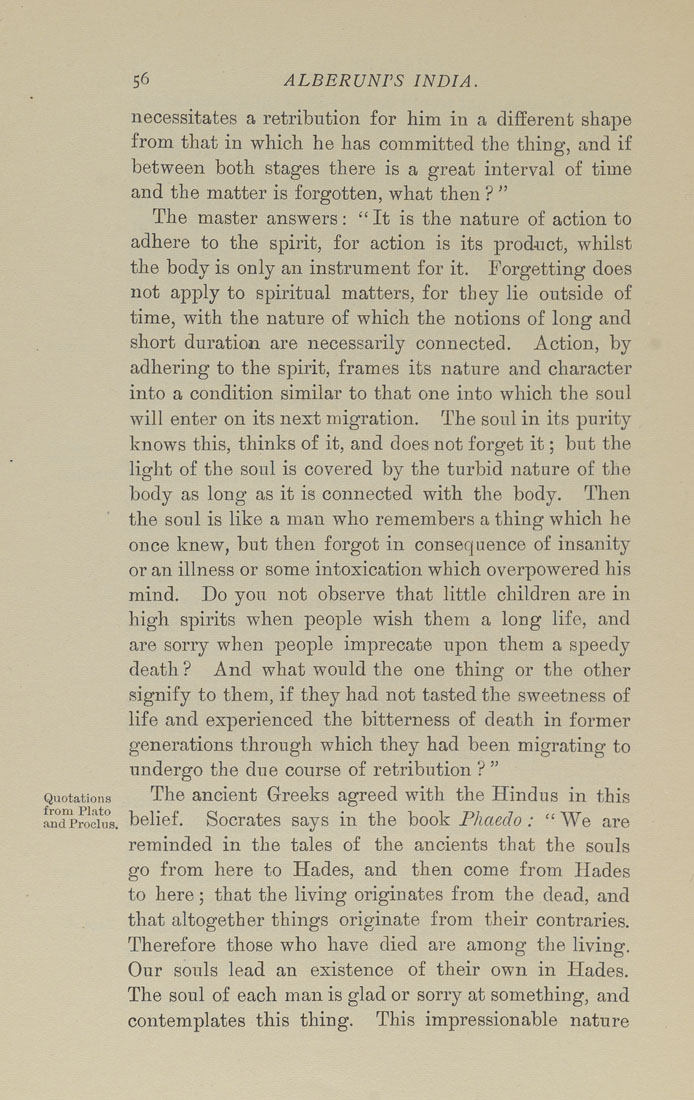Bīrūnī, Muḥammad ibn Aḥmad, Alberuni's India (v. 1)
(London : Kegan Paul, Trench, Trübner & Co., 1910.)
|
||
|
|
|
|
| Page 56 |

56 ALBERUNPS INDIA. necessitates a retribution for him in a different shape from that in which he has committed the thing, and if between both stages there is a great interval of time and the matter is forgotten, what then ? " The master answers: "It is the nature of action to adhere to the spirit, for action is its product, whilst the body is only an instrument for it. Forgetting does not apply to spiritual matters, for they lie outside of time, with the nature of which the notions of long and short duration are necessarily connected. Action, by adhering to the spirit, frames its nature and character into a condition similar to that one into which the soul will enter on its next migration. The soul in its purity knows this, thinks of it, and does not forget it; but the light of the soul is covered by the turbid nature of the body as long as it is connected with the body. Then the soul is like a man who remembers a thing which he once knew, but then forgot in consequence of insanity or an illness or some intoxication which overpowered his mind. Do you not observe that little children are in high spirits when people wish them a long life, and are sorry when people imprecate upon them a speedy death ? And what would the one thing or the other signify to them, if they had not tasted the sweetness of life and experienced the bitterness of death in former generations through which they had been migrating to undergo the due course of retribution ? " Quotations Tho ancicut Greeks agreed with the Hindus in this an°dProeius. belief. Socratcs says in the book Phaedo : " We are reminded in the tales of the ancients that the souls go from here to Hades, and then come from Hades to here; that the living originates from the dead, and that altogether things originate from their contraries. Therefore those who have died are among the living. Our souls lead an existence of their own in Plades. The soul of each man is glad or sorry at something, and contemplates this thing. This impressionable nature |
| Page 56 |







